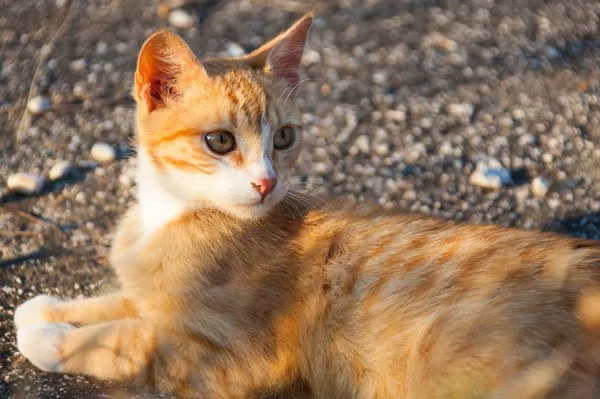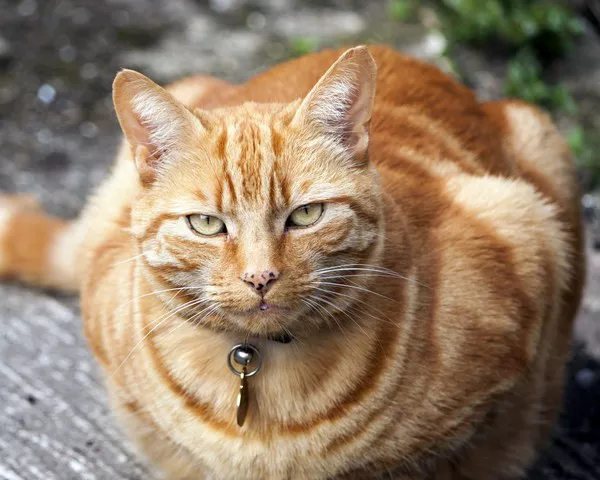Deworming is a crucial aspect of feline health care, as parasites can significantly affect a cat‘s well-being. While deworming medications are essential for eliminating these unwanted guests, the role of diet in supporting a cat’s overall health and aiding in recovery cannot be overlooked. A balanced, nutritious diet can enhance the effectiveness of deworming treatments and bolster the cat’s immune system, helping to prevent future infestations. This essay explores what to feed cats for effective deworming, focusing on dietary considerations, specific food recommendations, and the importance of hydration and overall health.
Understanding Cat Parasites
Before delving into dietary strategies, it’s essential to understand the types of parasites that commonly affect cats. The two primary categories of parasites are internal and external.
Internal Parasites
Internal parasites live within the cat’s body and include:
Roundworms: These are common in kittens and can cause malnutrition, vomiting, and diarrhea.
Tapeworms: Often transmitted through fleas, tapeworms can lead to weight loss and digestive issues.
Hookworms: These parasites feed on the cat’s blood, leading to anemia and lethargy.
Coccidia: These microscopic organisms can cause severe diarrhea, particularly in young or immunocompromised cats.
External Parasites
While this essay primarily focuses on internal parasites, it’s important to note that external parasites such as fleas and ticks can also impact a cat’s health by causing stress and leading to secondary infections.
The Role of Diet in Deworming
A well-balanced diet plays a vital role in supporting a cat’s immune system and overall health. While no specific food can replace deworming medications, certain dietary components can enhance the effectiveness of these treatments and promote recovery.
Nutritional Requirements of Cats
Cats are obligate carnivores, meaning their diet must primarily consist of meat. A balanced diet for cats should include:
Proteins: Essential for muscle development and repair, proteins should come from high-quality animal sources.
Fats: Healthy fats provide energy and support skin and coat health.
Vitamins and Minerals: These nutrients are crucial for various bodily functions, including immune response.
Water: Adequate hydration is essential for overall health and aids in digestion.
Foods That Support Immune Function
Certain nutrients can enhance a cat’s immune response, making it easier for the body to fight off parasites and recover from infections.
Omega-3 Fatty Acids: Found in fish oil and flaxseed, omega-3s have anti-inflammatory properties that can help support the immune system.
Antioxidants: Vitamins C and E, along with selenium, can help protect cells from damage and support immune function.
Probiotics: These beneficial bacteria can improve gut health, aiding digestion and enhancing the immune response.
Specific Food Recommendations for Deworming
When considering what to feed cats for effective deworming, it’s essential to focus on high-quality, nutrient-dense foods. Here are some specific recommendations:
High-Quality Commercial Cat Food
Opt for high-quality commercial cat foods that meet the standards set by the Association of American Feed Control Officials (AAFCO). Look for:
High Protein Content: Foods with real meat as the first ingredient are preferable. Look for options that contain chicken, turkey, or fish.
Limited Fillers: Avoid foods with excessive fillers such as corn, soy, and artificial additives. These can dilute the nutritional value of the food.
Raw Diets
Some cat owners choose to feed a raw diet, which can be beneficial for certain cats. A raw diet often includes:
Raw Meat: Chicken, turkey, or beef can provide essential proteins and fats.
Organ Meats: Liver and heart are nutrient-dense and provide essential vitamins and minerals.
Bone Meal: Ground bones can provide calcium and phosphorus, important for bone health.
Caution: If considering a raw diet, consult with a veterinarian to ensure it is balanced and safe, particularly for cats recovering from parasitic infections.
Cooked Foods
If you prefer to prepare homemade meals, ensure they are balanced and nutritious. Suitable cooked foods include:
Cooked Chicken or Turkey: Remove all bones and skin, and avoid seasoning.
Fish: Cooked fish like salmon or sardines can be a good source of protein and omega-3 fatty acids.
Vegetables: While cats are primarily carnivorous, small amounts of cooked vegetables like carrots or peas can provide fiber and nutrients.
Supplements
In addition to regular food, consider incorporating supplements that can support your cat’s health during the deworming process:
Probiotics: These can help restore gut flora after deworming, improving digestion and immune function.
Fish Oil: Omega-3 supplements can help reduce inflammation and support overall health.
Multivitamins: Consult with a veterinarian about appropriate multivitamin supplements to ensure your cat receives all necessary nutrients.
Hydration and Its Importance
Hydration is a critical aspect of feline health, especially during the deworming process. Proper hydration aids in digestion, nutrient absorption, and the elimination of toxins. Here are some tips to ensure your cat stays hydrated:
Fresh Water: Always provide fresh, clean water. Cats can be picky about their water source, so consider using a cat water fountain to encourage drinking.
Wet Food: Incorporating wet food into your cat’s diet can increase their water intake. Many commercial cat foods contain a significant amount of moisture, which is beneficial for hydration.
Broth: Offering low-sodium chicken or beef broth can entice your cat to drink more fluids.
Recognizing Signs of Parasite Infestation
Before discussing dietary strategies, it’s essential to recognize the signs of parasite infestation. Early detection can lead to prompt treatment and a better outcome for your cat. Common signs include:
Weight Loss: Despite a good appetite, cats may lose weight due to malnutrition caused by parasites.
Vomiting and Diarrhea: Frequent vomiting or diarrhea can indicate the presence of internal parasites.
Lethargy: A noticeable decrease in energy levels may signal an underlying health issue.
Poor Coat Condition: A dull, unkempt coat can be a sign of nutritional deficiencies or health problems.
Visible Worms: In some cases, tapeworm segments may be visible in the feces or around the cat’s anus.
The Deworming Process
Once a parasitic infection is confirmed, the deworming process typically involves the following steps:
Veterinary Consultation
Consult your veterinarian for a proper diagnosis and treatment plan. They may perform a fecal examination to identify the specific type of parasite and recommend appropriate deworming medications.
Administering Deworming Medications
Follow the veterinarian’s instructions for administering deworming medications. These may be in the form of tablets, liquids, or injections, depending on the type of parasite and the severity of the infection.
Dietary Adjustments
During the deworming process, consider adjusting your cat’s diet as outlined above. A nutritious diet can support recovery and enhance the effectiveness of the treatment.
Monitoring Recovery
After deworming, monitor your cat for any signs of improvement or adverse reactions. Follow up with your veterinarian as needed to ensure the parasites have been eliminated.
Preventing Future Infestations
While deworming is essential for treating existing infections, prevention is key to avoiding future infestations. Here are some strategies to consider:
Regular Veterinary Check-Ups
Schedule regular veterinary check-ups to monitor your cat’s health and conduct routine fecal examinations. Early detection of parasites can prevent more severe infections.
Maintain Good Hygiene
Keep your cat’s living environment clean by regularly cleaning litter boxes and areas where your cat spends time. Dispose of feces promptly to reduce the risk of reinfection.
Control Fleas and Ticks
Implement a flea and tick prevention program, as these parasites can transmit internal parasites like tapeworms. Use veterinarian-recommended treatments to keep your cat protected.
Limit Outdoor Access
If possible, limit your cat’s outdoor access to reduce exposure to potentially contaminated environments. Supervised outdoor time can help minimize risks while still allowing your cat to enjoy the outdoors.
Feed a Balanced Diet
Continue to provide a balanced, nutritious diet to support your cat’s immune system and overall health. Regularly assess the quality of the food you provide and make adjustments as needed.
Conclusion
Feeding your cat a nutritious diet is an essential component of effective deworming and overall health. While deworming medications are necessary for eliminating parasites, a balanced diet can enhance the effectiveness of these treatments and support recovery. By incorporating high-quality commercial foods, considering raw or cooked options, and ensuring proper hydration, pet owners can help their feline companions recover from parasitic infections and prevent future infestations. Regular veterinary check-ups, good hygiene practices, and a focus on nutrition will contribute to a healthier, happier cat.
Related topic:

























